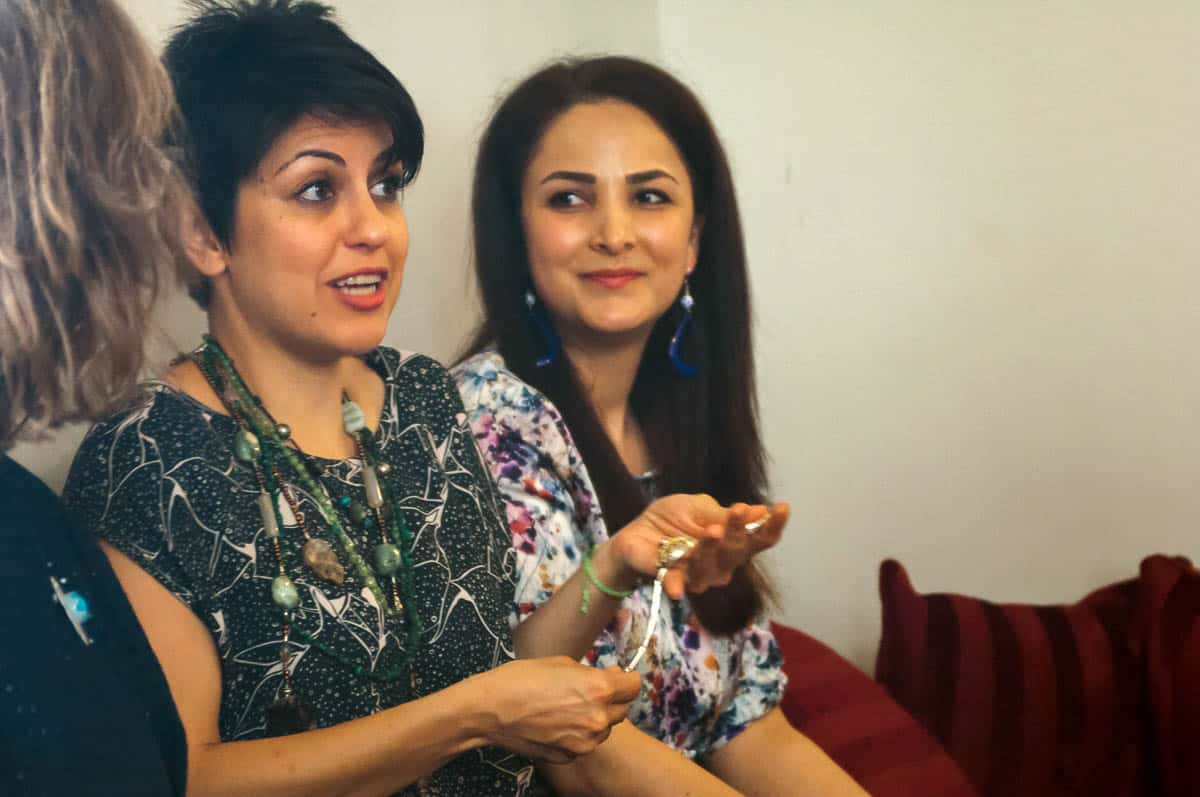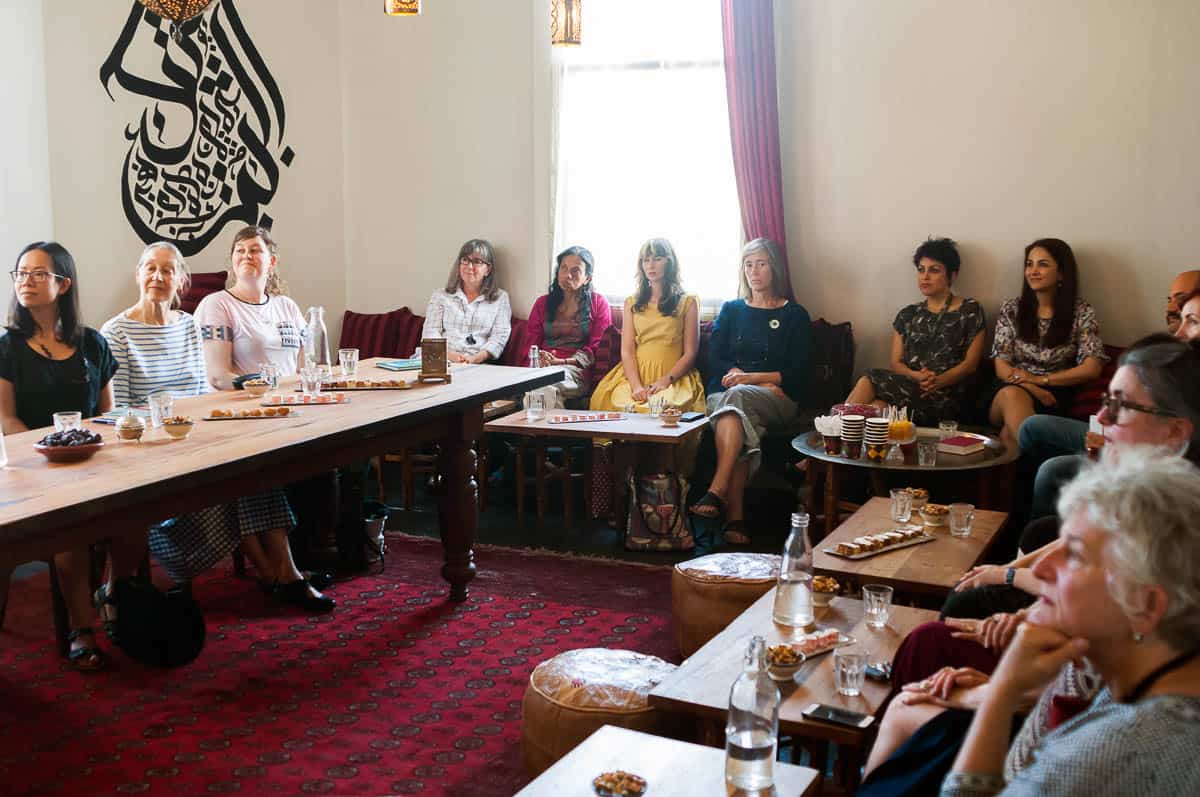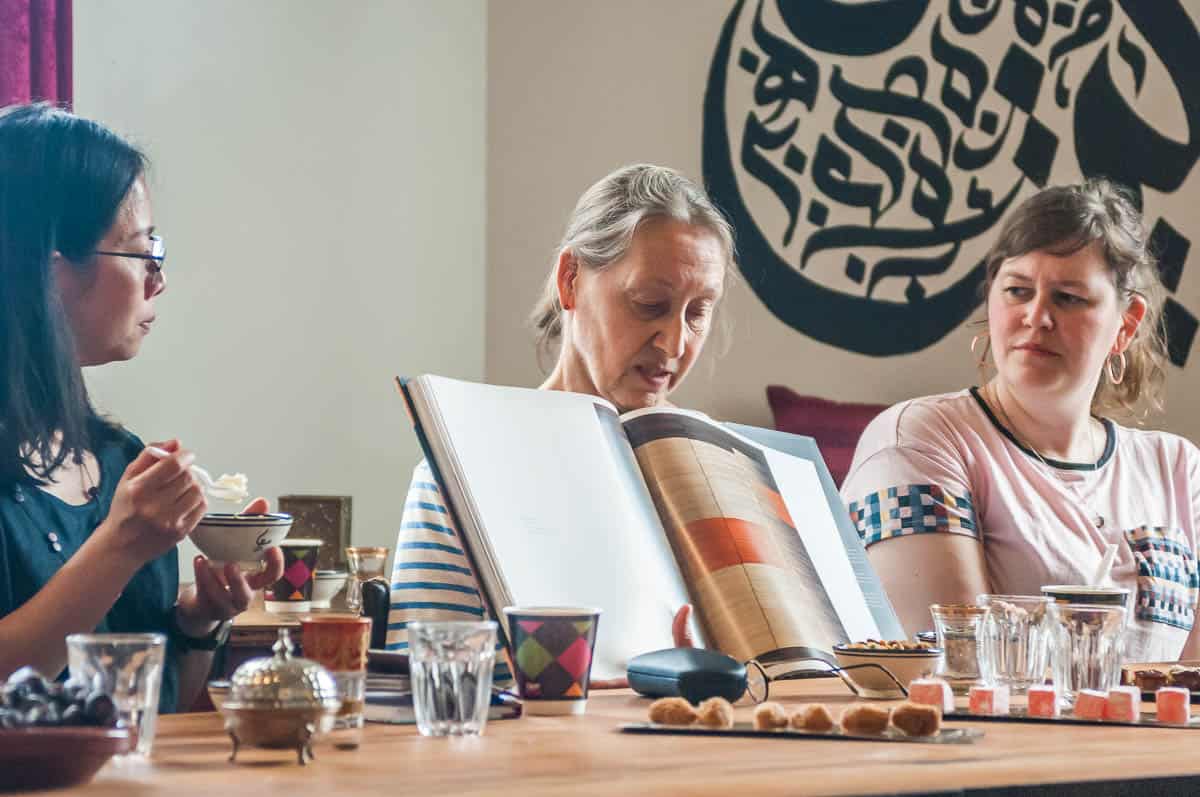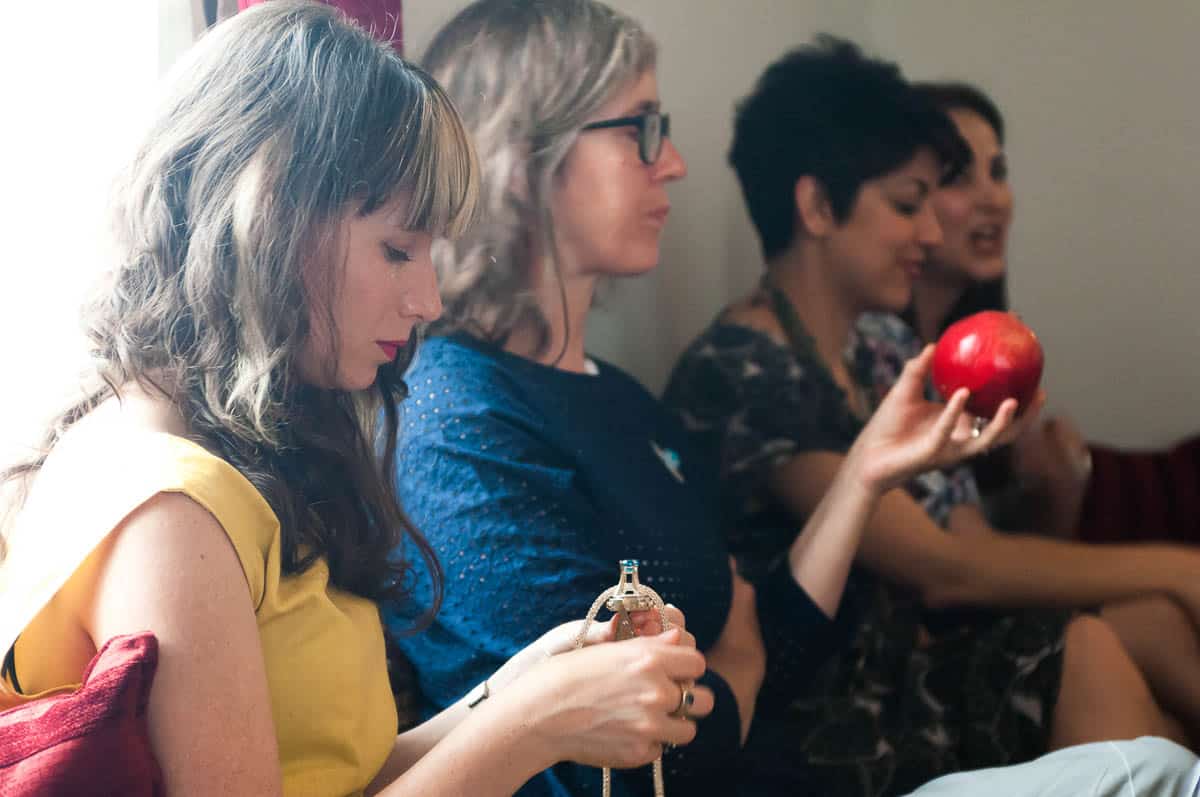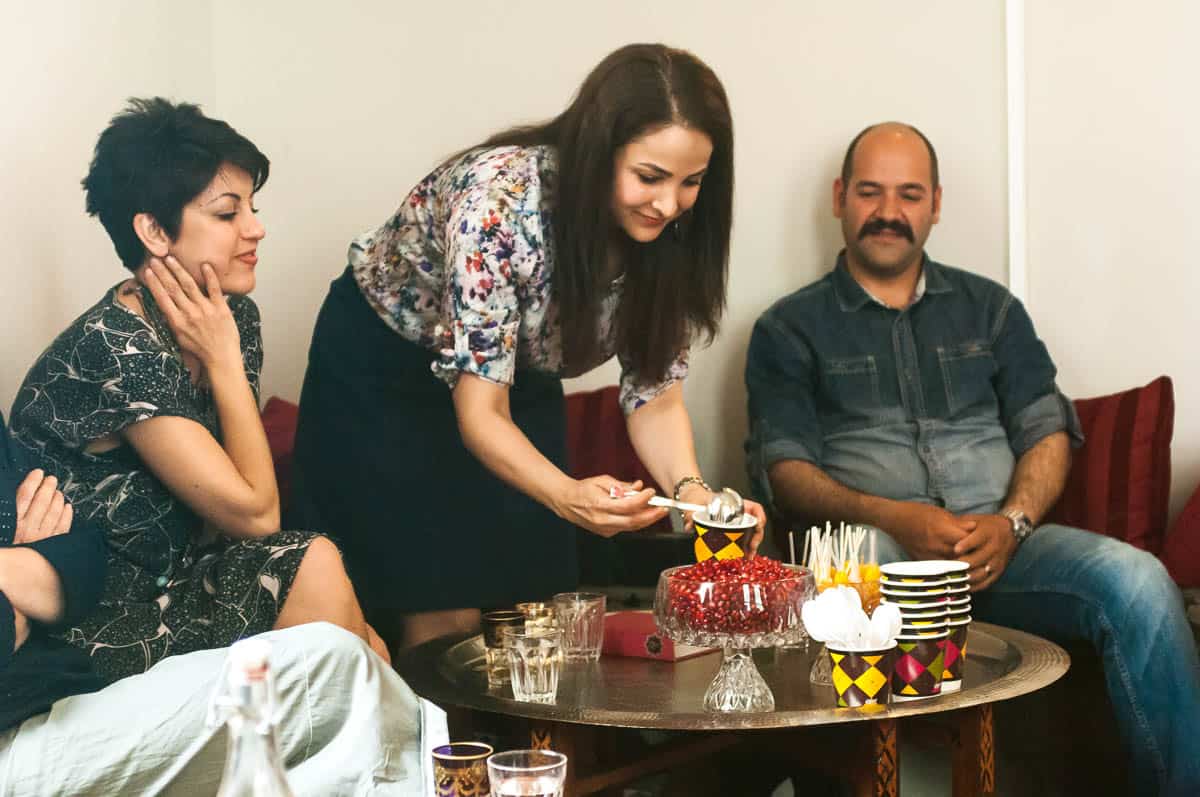- Sanaz Fotouhi talking about the jewellery of Mehrnoosh Ganji, photo: Ali Lamei (www.alilamei.com)
- Merhnoosh Ganji performing a “faal” by opening a book of Hafez poetry at random, photo: Ali Lamei (www.alilamei.com)
- Photo: Ali Lamei (www.alilamei.com)
- Sara Lindsay sharing her loved book of Iranian textiles, photo: Ali Lamei (www.alilamei.com)
- Passing around the Lotus Transformer, and its inspiration, the pomegranate, photo: Ali Lamei (www.alilamei.com)
- Mehrnoosh Ganji provided everyone with a cup of pomegranate seeds to savour, photo: Ali Lamei (www.alilamei.com)
- Mehrnoosh Ganjia and Sanaz Fotouhi with the epic jewellery, photo: Ali Lamei (www.alilamei.com)
We had the chance at the Moroccan Deli-cacy to examine the redolent jewellery of Mehrnoosh Ganji at first hand. The afternoon commenced with a welcome from the owner Hana Assafiri who talked about the values of tolerance and the process of commissioning the beautiful fit-out for her cafe from artisans in Morocco.
Then Mehrnoosh performed a “faal”, which involved opening the Divan of Hafez at random. She then read out the poem in Farsi. The translation below has none of the melody of the original language. But it does convey a sense that the suffering of life should not blind us to the capacity for great beauty.
Hafez Ghazal #234
When the golden orb ascends from the east of the cup
A thousand tulips upon the beloved’s cheeks open up
The morning breeze breaks upon the head of the bouquet
The bouquet of the bouquet will flow amidst the grass and crop.
The story of the night of separation is not that story
Of which a small account many, many books would fill up.
This poor and impoverished house of Fate can’t satiate
Cry out a hundred sorrows and upon a morsel sup.
With brain and brawn cannot search for the essence
A mere fantasy, this endeavor too will flop.
If like Noah, you can patiently await the end of storm
The tides of fortune turn, and your life-long desires prop.
If the breeze of your hair at Hafiz’s tomb makes a stop
A hundred thousand tulips will adorn his grave-top.
© Shahriar Shahriari
Los Angeles
There were many wonderful moments that followed. Sanaz Fotouhi spoke of the enduring power of the pomegranate in Iranian culture. Mehrnoon generously provided everyone with a cup of fresh pomegranate seeds to enjoy, which opened discussion about its meaning in other cultures.
The issue of Iranian contribution to Australian society provoked considerable debate. Is it a matter of how Iranians adapt to Australia, or Australians to Iranian culture?
One potential in the growing Iranian presence is an appreciation of the symbolism in the handmade object. The dominance of modernism in Western cultures could be seen to encourage a formalism that detaches the object from experience in everyday life.
The success of this event emboldens us to think about other ways we can gather together to share the thoughtful and well-crafted objects being made around us.

